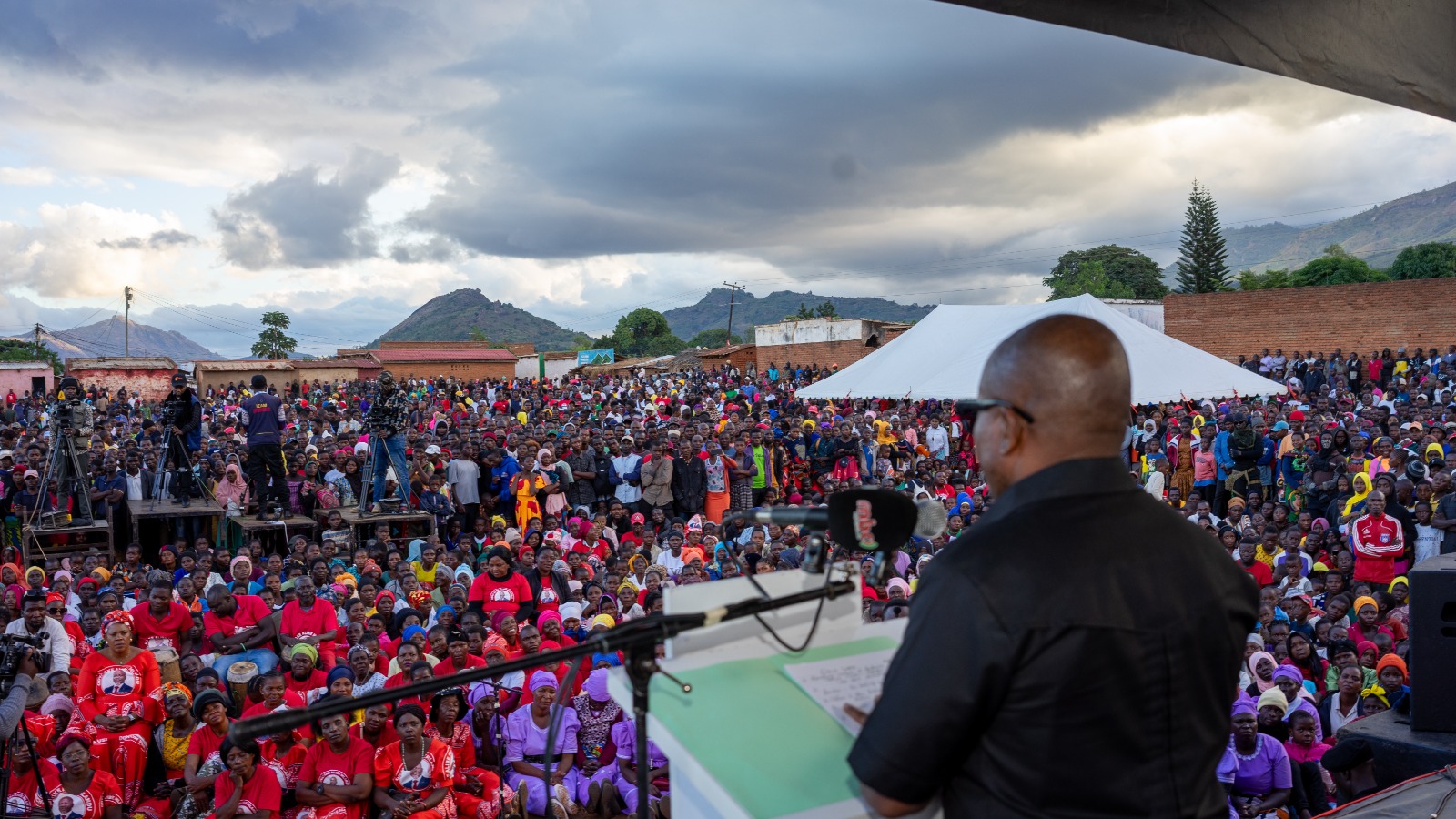ANALYSIS | What Did Saulos Chilima See in Michael Usi That We Keep Ignoring?
When the late Vice President Saulos Klaus Chilima handpicked Dr. Michael Bizwick Usi as his political partner and eventual heir to the UTM torch, it wasn’t just a personal choice — it was a calculated strategic decision. Many dismissed it as a move based on personality, theatrics, or public appeal. But Chilima, a shrewd political operator in his own right, saw something deeper.

The question is: why do so many still overlook the qualities Chilima identified in Usi — qualities that, if harnessed fully, could redefine Malawi’s politics?
- A Strategic Mind Hidden in Plain Sight
To the casual observer, Usi is a lively public speaker with a background in the arts. But those who have worked with him know his real strength lies in strategic thinking.
Chilima recognised that Usi was not just a crowd-puller; he was a planner. From his days in community theatre, Usi learned how to mobilise people around a common cause, structure messages for maximum impact, and organise campaigns with limited resources. These are the same skills political operatives spend years trying to master.
Usi’s ability to read a political room, understand the motivations of different audiences, and adapt messaging accordingly is a form of political intelligence that Chilima understood could be weaponised for national mobilisation.
- A Grassroots Mobiliser Who Speaks the People’s Language
Unlike many political leaders who operate from the top down, Usi’s style is deeply rooted in community engagement. His years in theatre, development work, and civic advocacy taught him how to meet people where they are — not just geographically, but emotionally and culturally.
Chilima valued this because politics in Malawi is not won on press statements or boardroom deals alone — it is won in villages, markets, churches, and schools. Usi’s ability to energise communities, make them feel heard, and mobilise them into action is a rare gift in an era where political engagement often feels detached from ordinary people’s struggles.
- An Astute and Relatable Communicator
Communication is the oxygen of politics, and here Usi stands out. His style blends storytelling, humour, and data in a way that resonates across demographics. He can be disarmingly relatable with rural audiences while still delivering policy-rich speeches in formal settings.
Chilima understood that in a nation where trust in politicians is low, a leader who can communicate authentically and persuasively is an asset worth investing in. Usi’s communication isn’t about slogans — it’s about connection.
- The Ability to Convert Popularity into Political Capital
One of the hardest political skills is turning raw popularity into organised political capital. Usi had already done this in the civic space before entering politics — turning his entertainment platform into a tool for social change.
Chilima saw that this capacity, combined with UTM’s political machinery, could create a formidable political force. Indeed, Usi’s leadership within Odya Zake Alibe Mulandu has shown he can blend activism, policy, and mobilisation into a coherent political message.
- The Leadership Qualities We Keep Overlooking
Why then do so many still reduce Usi to a “comedian turned politician”? Partly because he defies the traditional political mould, and partly because we mistake unconventional style for lack of substance.
Chilima, however, knew that leadership is not about looking the part — it’s about delivering results, inspiring followership, and shaping narratives. In all these areas, Usi is proving himself more than capable.
A Legacy Choice That Still Speaks
In choosing Usi, Chilima wasn’t just naming a deputy — he was identifying a successor who could carry forward a vision grounded in reform, community empowerment, and political authenticity. That was a choice made in foresight, not sentiment.
As the political landscape shifts ahead of the 2025 elections, it may be time to re-evaluate Usi not as a novelty in politics, but as the strategic leader, community mobiliser, and master communicator that Chilima saw all along.
Perhaps the real question now is not what did Chilima see in Usi? — but whether we will finally see it too.
Follow and Subscribe Nyasa TV :

